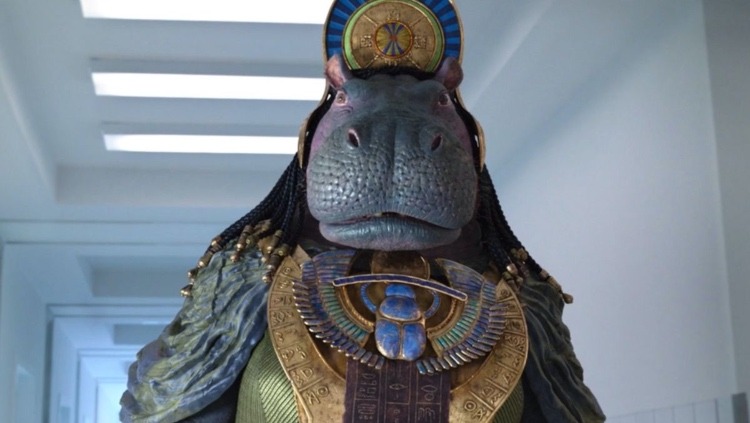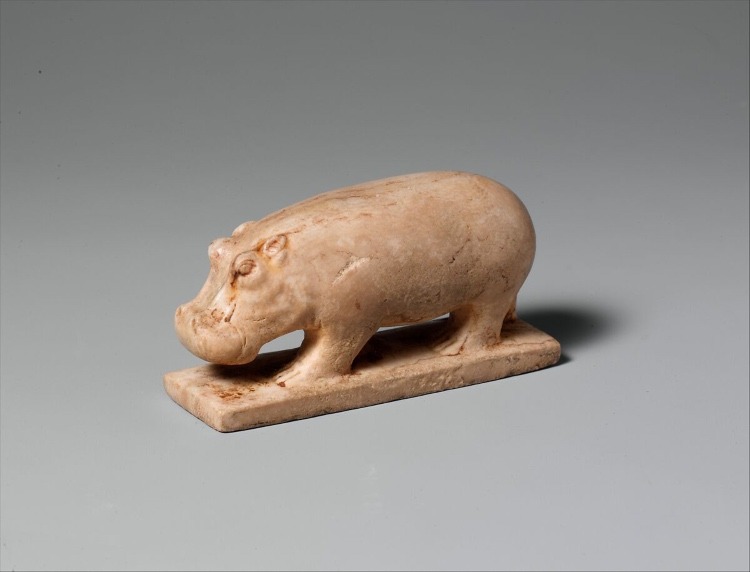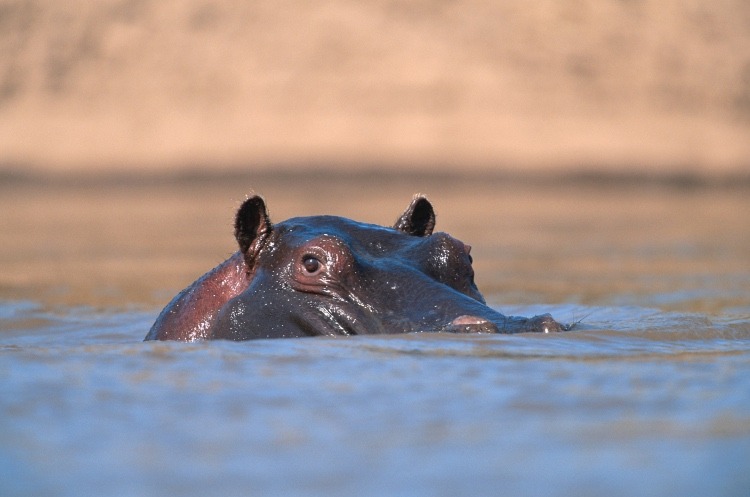On Feb. 15, we commemorate World Hippo Day, a day used to spread awareness on these beautiful animals and take steps for preservation. Coming in third after elephants and rhinos, these animals may weigh up to 2,000 kg, according to National Day, making them one of the largest land mammals. Don’t be fooled by their size, hippos are pretty fast and though cute looking can get very aggressive. Interestingly these beautiful creatures meant so much to the Ancient Egyptians and so we will celebrate our beloved hippos by looking at their significance in ancient times.

Goddess Taweret
Have you seen Marvel’s, Moon Knight? Well, if you did then you probably saw the Egyptian goddess Taweret in episode 4 who took the form of a woman with the head of a hippo. In ancient Egyptian mythology, Taweret was known as the goddess of pregnancy and motherhood. She was seen as a symbol of protection for both women and children.
While the goddess has many incarnations where she is sometimes portrayed as a violent figure, her main presence focuses more on her as a motherly figure. There were also several Egyptian myths that depicted Taweret as a kind of nurse who warded off evil spirits determined to harm mothers.

Starting a war
Hippos also had another significant impact on ancient Egyptian culture by serving as the impetus for the Great War against the “Hyksos.” Their identity remains unknown to this day, but Ancient Origins says that they were a group of Levantine lords who dominated the northern Delta arriving in Egypt somewhere about 1638 B.C.
The ancient Egyptian Seventeenth Dynasty, led by Senakhtenre Ahmose, had become weary of their existence as a result of their strict control over some parts of Egypt and was on a mission to drive them out. Things escalated from there when the Hyksos ruler complained about noisy hippos to Ahmose who saw it as a sign of great disrespect to their beliefs seeing that hippos were seen as holy figures.

A symbol of regeneration and rebirth
The Met states that ancient Egyptians regarded hippos as good creatures very much connected to life since they lived by the Nile River a “source of life”. They often submerge in water for several minutes, surface to breathe, then sink again; this behavior of disappearing and reappearing was then associated with regeneration and rebirth.

The battle to become Pharaoh of Egypt
Osiris ruled as the pharaoh of Egypt with his sister-wife Isis, bringing peace and prosperity to the land. But his elder brother, Seth became insanely jealous, leading Osiris to his death after tricking him into a perfectly fitted coffin. Horus, Isis’s son, petitioned the gods with his claim to the throne and his desire to get revenge on his deceased father.

The gods made the decision to let Seth and Horus compete for dominance and the throne. Seth made the decision that the first strength test would include them both transforming into hippos and going to the bottom of the Nile and whoever gets out of the water first loses.
Next time you see a majestic hippo you now have the choice to either run…or bow.



